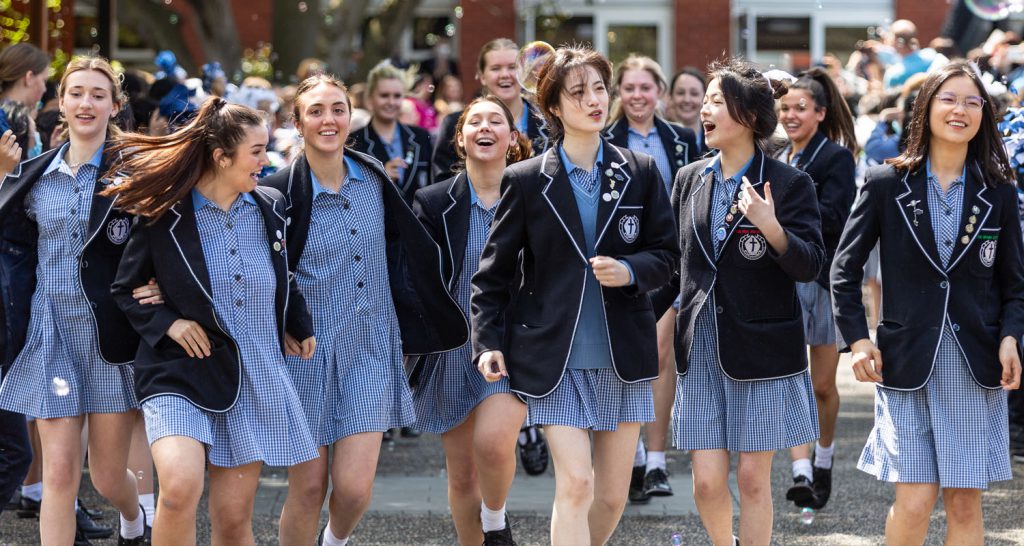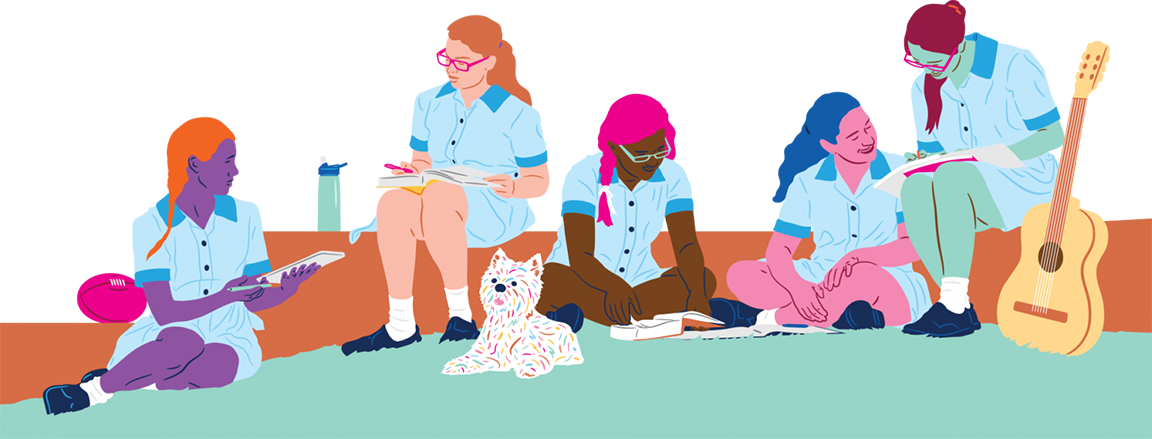The Principal outlines the School’s updated Smart Devices Policy and our commitment to digital wellbeing through clear and consistent smart device expectations across the School.

This time of year is such an exciting time as we commence our Orientation Programs for new students into Camberwell Girls and for those moving from Ormiston to Senior School. Within our year levels we also conduct transition programs and for those studying VCE, our Headstart program. It is an interesting time for students as they are simultaneously reaching the peak of, or concluding programs as well as looking with excitement to the possibilities of the year ahead.
In our lives we experience many transitions, a number of which are also important milestones. Commencing school, moving through adolescence, starting tertiary education or work, moving interstate or overseas, finding a partner and having children are all examples of significant times of change in our lives that often require some planning, preparation and understanding of what is happening to ensure they proceed successfully. For many young people, major times of transition are connected with their experiences of moving through school.
Students beginning schooling need to have developed the necessary skills to manage the demands of their new environment and be able to begin to work independently. At this age children often need a lot more practical help from parents and teachers to deal with their new daily routines such as managing their snacks and lunch, as well as having the correct clothes or uniform to wear each day. Schools aim to create continuity between the early childhood experiences and the new school experiences in order to help students make the necessary adjustments.
When moving from primary to secondary school, students need to manage the change from a one classroom/one teacher setting to one with multiple classrooms/multiple teachers. Managing lockers, taking different books and resources to different subjects and moving to an environment where they are once again the youngest students can lead to challenges for many. In addition, puberty and adolescence are, in themselves, transitions – physical and emotional. At this time adolescents are focussed on the development of their relationships with peers whilst developing greater independence from adults. The increasing maturity of their brains means they are in the process of acquiring the ability to plan, judge, problem solve and regulate their emotions.
When entering a new year, engaging your child in a discussion about the day can be useful, but sometimes it can be hard to elicit more than one word responses to questions like “How was your day?” You might like to ask your child more open-ended questions such as what type of co-curricular activities they have found out about, and whether they are interested in trying them, or questions about how it is different from the year before.
If your child raises concerns, remember it is very important to listen at this point rather that ‘jumping in’ with suggestions to solve their problems. They need to know that you are trying to understand the situation. If they propose a solution that you think may not work, acknowledge it, but also ask questions that help guide them to other options.
Finishing secondary school and moving to a tertiary environment can also involve a period of negotiating new situations, as students need to manage different expectations and often work within less structured environments.
It is important to guide your child to how they may seek the information they need such as attending open days and orientation programs as well as seek out support services in their new environment if required. Similar assistance is also useful for young people entering the workforce where they may need guidance on dress requirements, understanding the expectations of employers or how to seek support.
Transitions are journeys that have an ending and a new beginning and it is important to acknowledge both of these aspects of the journey. They are a chance to look forward to what is ahead while, at the same time, looking back and acknowledging that what we are leaving may be missed. It can be useful to think of transitions in stages:
During transitions, students may experience a range of emotions depending on their personal situation and stage of development. Emotions can include feelings of anticipation, excitement, hope and happiness combined with stress, anxiety, grief and nervousness and these feelings can be due to the uncertainty associated with altered circumstances as well as to the physical and emotional changes that are occurring within young people at this time in their lives. It is important to acknowledge these feelings and try to help make sense of them for each individual.
Research has shown that successful transitioning depends upon a number of factors which include:
At Camberwell Girls we recognise the importance of successful transitions. Whether your child is commencing in Foundation, Year 5 or Year 7, moving up a year level or preparing for tertiary education or work, students are more likely to experience change as positive and fruitful when there is good planning and understanding of the process by all members of the family. Please don’t hesitate to contact us if you have any questions.
With best wishes,
Camberwell Girls Grammar School is currently inviting expressions of interest to join the CGGS Council to fill an upcoming vacancy. The CGGS Council invites membership from within the community and external to the school community, and seeks to maintain a breadth and balance of skill-sets.
For further information and to complete the nomination form, please visit the link below.
The Principal outlines the School’s updated Smart Devices Policy and our commitment to digital wellbeing through clear and consistent smart device expectations across the School.
The term is in full stride, with students embracing academic challenge, cultural celebration, service, House spirit and sporting excellence across a vibrant start to 2026.
A strong sense of belonging and participation has shaped the start of term, as students embrace leadership, learning, House spirit and opportunities to grow across the Junior School.

